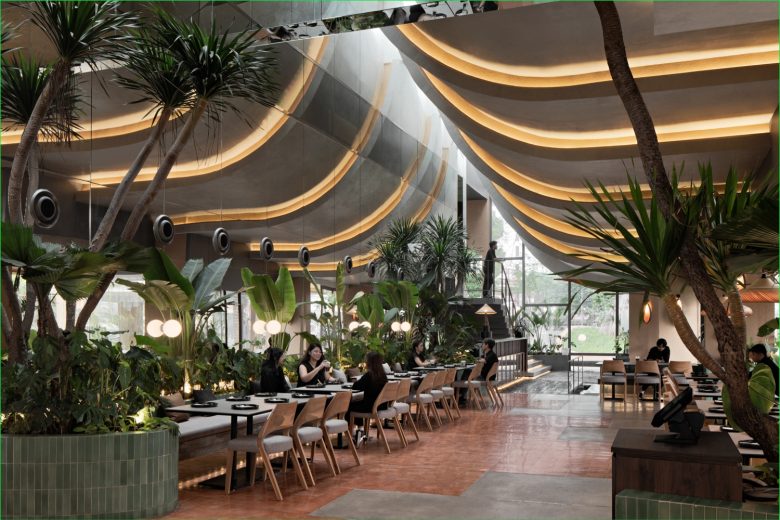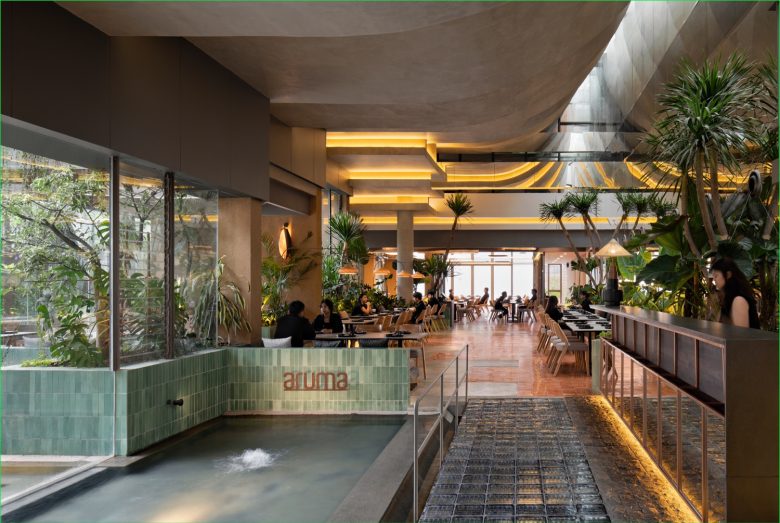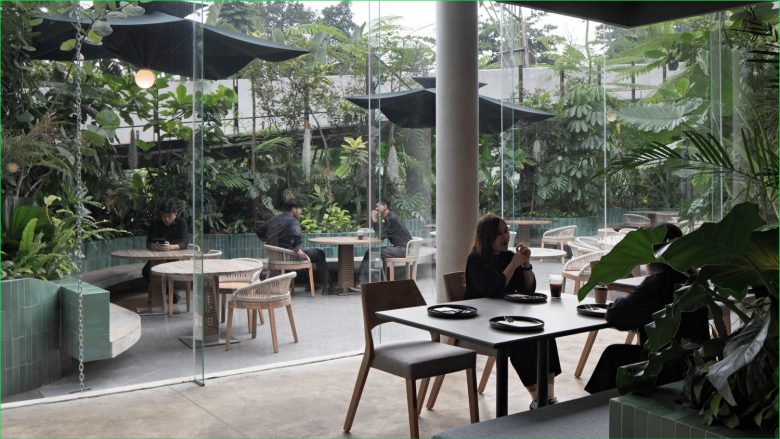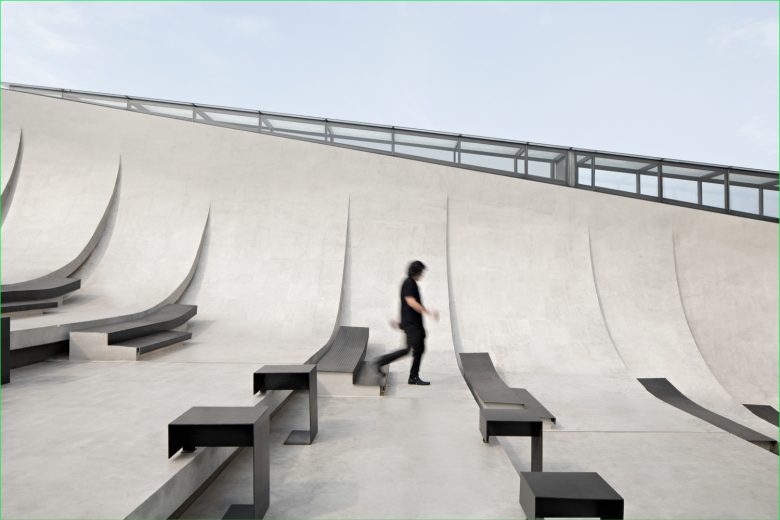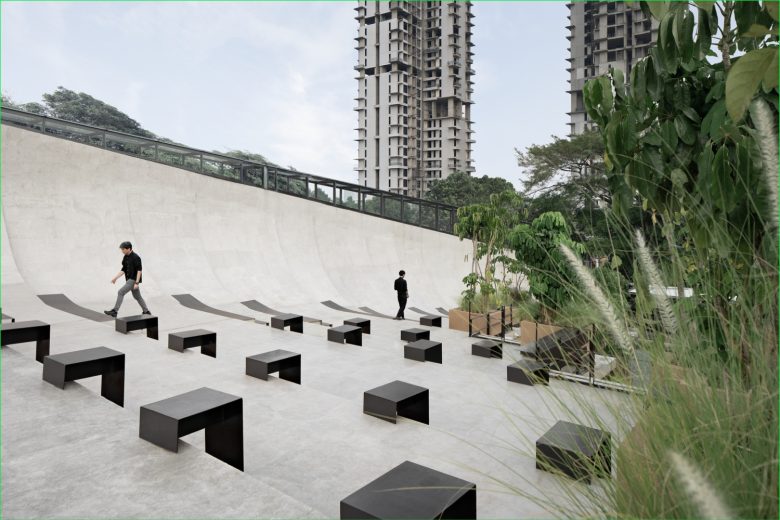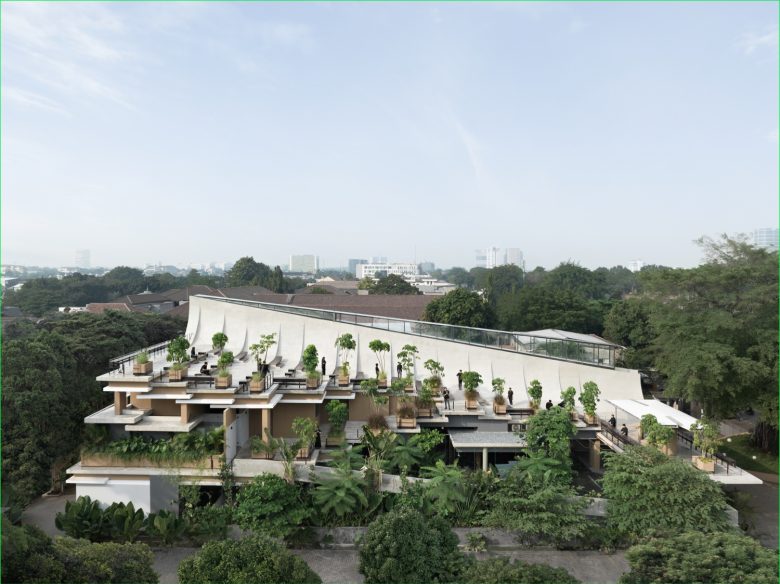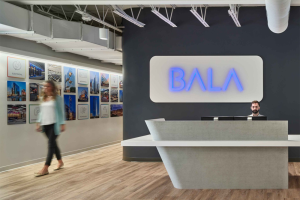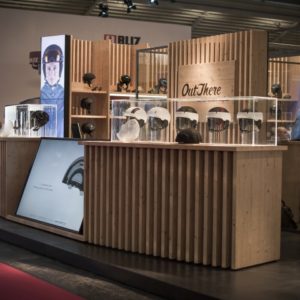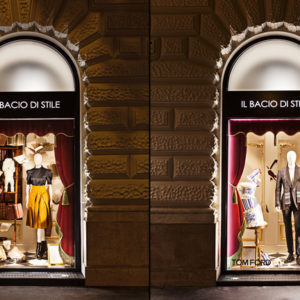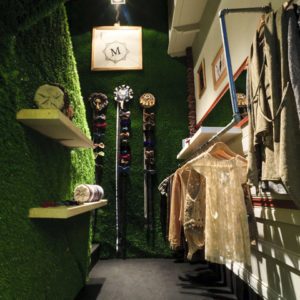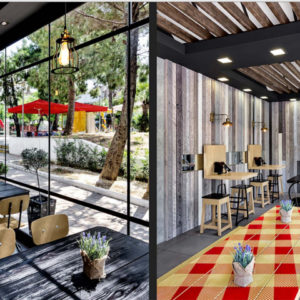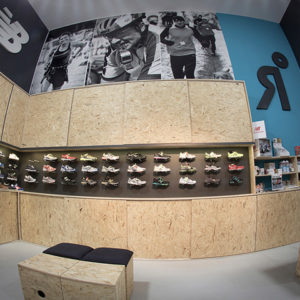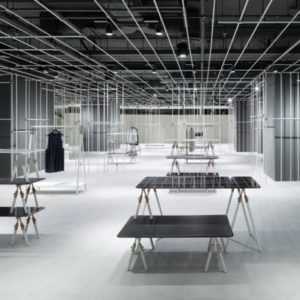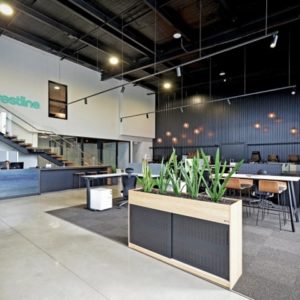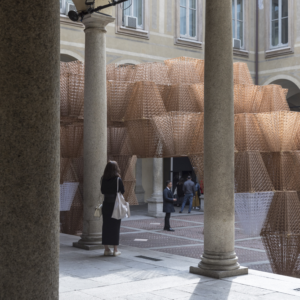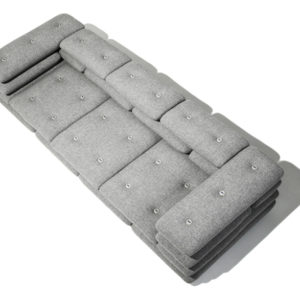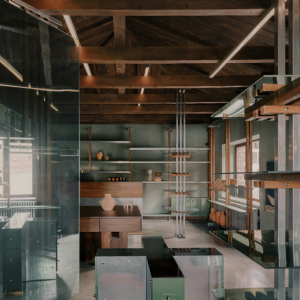
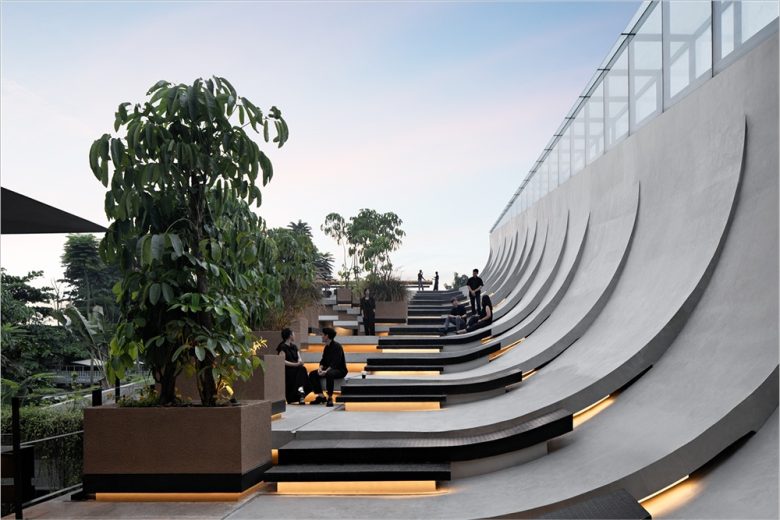
Although not yet on the same level as Asia‘s current number one lifestyle hub Seoul, the sprawling Indonesian capital Jakarta is another buzzing city in this part of the world where developments in retail and hospitality have gone leaps and bounds. A sustained and solid economic growth has also fuelled plenty of endeavours, especially in the field of hospitality, and it’s arguably one of the industries where progress and diversification have manifested most visibly. In the past decade, Jakarta‘s metropolitan area has seen an accelerated growth and diversification, spawning hospitality establishments that wouldn’t look out of place in rivalling capitals in the region, such as Singapore, Kuala Lumpur and Bangkok. That said, the city is following a trajectory of its own, churning out a growing number of design-led establishment all its own.
Emerging right next to Tanatap café, a striking venue we’ve covered in a previous post, Indonesian architecture practice RAD+ar once again designed a venue with an undeniable architectural allure which bears witness of this trend. Called Aruma, it’s a restaurant which bears witness of the city’s fast-paced and ongoing transformation. Instigated by the scarcity of land and costs, especially in an affluent neighbourhood like Kemang, the design practice created a building that would optimise space through distinct zones within a compound and a rather spectacular split-level roof garden design. The design of the building was oriented north-south to preserve the existing lush vegetation in the back garden and incorporates elements such as roofs, facades, walls, diagonal cantilevered structures, and furniture elements, all with a contemporary aesthetic.
As such, structural elements were integrated into the spatial planning of the design, allowing a seamless transition from the front garden and diagonally creating a loop connection for Aruma‘s three sections—a ground floor restaurant, a bar on mezzanine level, and last but not least, a beer garden in between spaces extended to the rooftop. Additionally, environmental objectives have been embedded in the design as well, such as minimising material usage, sustainable finishing materials and considerate energy consumption. In fact, the design aims to set a new building standard in a fast-developing country as Indonesia. The menu at Aruma may be distinctly Indonesian, the flavours and presentation of the dishes is anything but traditional and full of modern twists, offering small bites, soups, main dishes, meat, chicken, fish, and desserts, in addition to various coffee concoctions, teas, juices and shakes.
